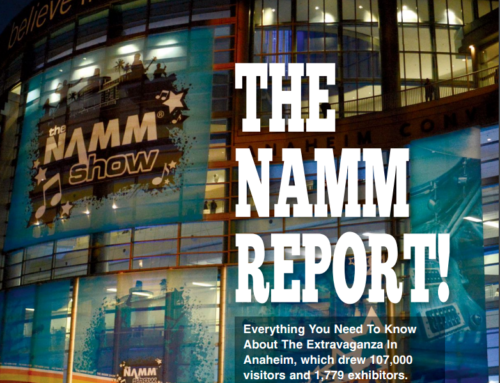Natural Language Search to Support Local & National Businesses
There’s no better way to answer a consumer’s question than by doing just that—answering a consumer’s question. The challenge comes in doing so in a way that suits the needs of today’s consumers, ever immersed in work and play while seeking immediate answers to questions that help carry them along in their daily lives.
Enter: the smartphone.
At the benefit of today’s businesses, these very consumers almost always have one tool—a smart phone—on hand. Transforming the world of search, smartphones and other smart devices are backed by software referred to as “intelligent assistants” (or, IA) that allow them to respond to a user’s question with human-like responses. By nature, the ability to verbally ask IA questions such as, “where is the closest pizza place?” or, “how do I purchase a money order?” has transformed the way we search, both online and offline.
How Does Natural Language Processing Work?
Natural language processing, or NLP, is a machine’s ability to analyze, understand, and respond to human speech1. Making human to technology interactions feel as seamless as human to human interactions, NLP is slowly becoming a daily part of our lives and a driving factor behind the success of both local and national brands.
To provide humanlike responses to today’s consumers, search engines undergo a strategic process of understanding and generation. First, the software undergoes a process called sentiment analysis, in which it takes the information being asked and assesses it to determine the overall need of the consumer. Based on the results, IA uses search engines to generate the most appropriate responses, designed to provide the user with the precise information they are after.
Sentiment Analysis Marketing to Support Businesses Big and Small
With so many consumers using verbal cues to receive information, sentiment analysis is now playing a key role in marketing initiatives. Sentiment analysis is the analysis of the feelings behind what is being asked2 through voice recognition tools, such as Siri and Cortana. Rather than simply look at how many individuals are searching for, “all-natural dog food” sentiment analysis looks to uncover why somebody is searching for this so that they may provide the most valuable response.
Helping marketers to understand what their consumers are asking and, more importantly, why they are asking it, there are several sentiment analysis tools3 available that track user sentiment:
- Google Analytics
- Google Alerts
- Hootsuite
- Social Mention
- Brandwatch
- Semantria
How Do Artificial Intelligence Assistants Answer Questions?
Though sentiment analysis, intelligent assistants are able to understand why a consumer is performing a search. Whether a user is looking for the nearest flower shop, the cheapest flower shop, or the highest-rated flower shop, intelligent assistants are designed to provide the exact results they are looking for. By nature, voice recognition devices, such as Google Now and Alexa, are impacting the way users search online. Rather than simply, “flower shop,” more users are beginning to ask, “where can I buy a dozen roses?”.
To formulate the responses consumers are looking for, the intelligent assistant technology relies on search engines, such as Google and Bing. Similar to traditional search methods, these assistants use the information populated on results pages to provide the feedback that is needed.
What Search Engines Do Intelligent Assistants Use?
| Technology Company | Intelligent Assistant | Default Search Engine | Compatible With… | How to Activate |
| Apple | Siri | Bing | iPhone or iPad | Press down and hold on Home. Also equipped with voice activation by saying “Hey Siri” – some devices require it to be plugged in to do so. |
| Amazon | Alexa | Bing | Amazon Audio Equipment (Eco, Echo Dot, and Tap) | Voice activated by saying “Alexa”. |
| Microsoft | Cortana | Bing | Windows, iOS, Android | Click inside the taskbar search box, and within the settings field, move the slider to “on”. Within settings, voice activation can also be turned on, allowing Cortana to respond to “Hey Cortana”. |
| Google Now | Android, iOS, Chrome | Voice activated by saying “OK Google”. | ||
| Google Assistant | Google Home, Google Pixel | Voice activated by saying “OK Google”. |
Applications of Natural Language Processing
Because so many businesses rely on search engines to attract new customers, natural language processing will become much more critical to their marketing efforts. Through natural language processing and sentiment analysis, businesses have the ability to showcase their products and services directly to qualified consumers. Applicable for industries across the spectrum, natural language processing can help businesses showcase their products or services in several ways:
1. Using Sentiment Analysis to Understand Search Queries and Provide Appropriate Results
Today’s consumers are growing more demanding in their search. Natural language processing can be used to ensure that the results they receive do, in fact, answer their question. Through sentiment analysis, intelligent assistants are able to assign a why to what users are searching for. Thus, they can scour the web for the most appropriate feedback, which may just happen to be your business.
2. Automating Answers and Summarizing Information for Fast-Paced Consumers
As society becomes more demanding in search, they demand efficiency. For the 61% of consumers using voice recognition devices when their hands or vision are occupied4, only concise answers will do. All the same, web searchers are growing less interested in drawn out responses—they want it now!
Through sentiment analysis, natural language processing can comprehend when a user is looking for options and detailed information versus when they want something in the immediate. This helps to mitigate information overload in favor of concise snippets of true value.
Making the Most of Natural Language Processing to Stand Out in Search
With Siri, Cortana, and Alexa now household names, the rise of natural language processing isn’t going anywhere. To accommodate the demands of today’s on-the-go consumers, businesses will be forced to integrate natural language processing into their ongoing marketing strategies. With 58% of search queries now being posed to smart devices over desktop5, it is important to consider how natural language processing will impact your marketing efforts… and that of your competitors!
Sources
- Pozzi, Federico Alberto, Elisabetta Fersini, Enza Messina, and Bing Liu, eds. Sentiment Analysis in Social Networks. Cambridge, MA: Morgan Kaufmann, 2017. Print.
- http://blog.neospeech.com/what-is-natural-language-processing/
- https://www.iprospect.com/en/ca/blog/10-sentiment-analysis-tools-track-social-marketing-success/
- http://searchengineland.com/voice-search-explosion-will-change-local-search-251776/
- https://sweetiq.com/blog/e-book-the-future-of-local-marketing-is-now/





